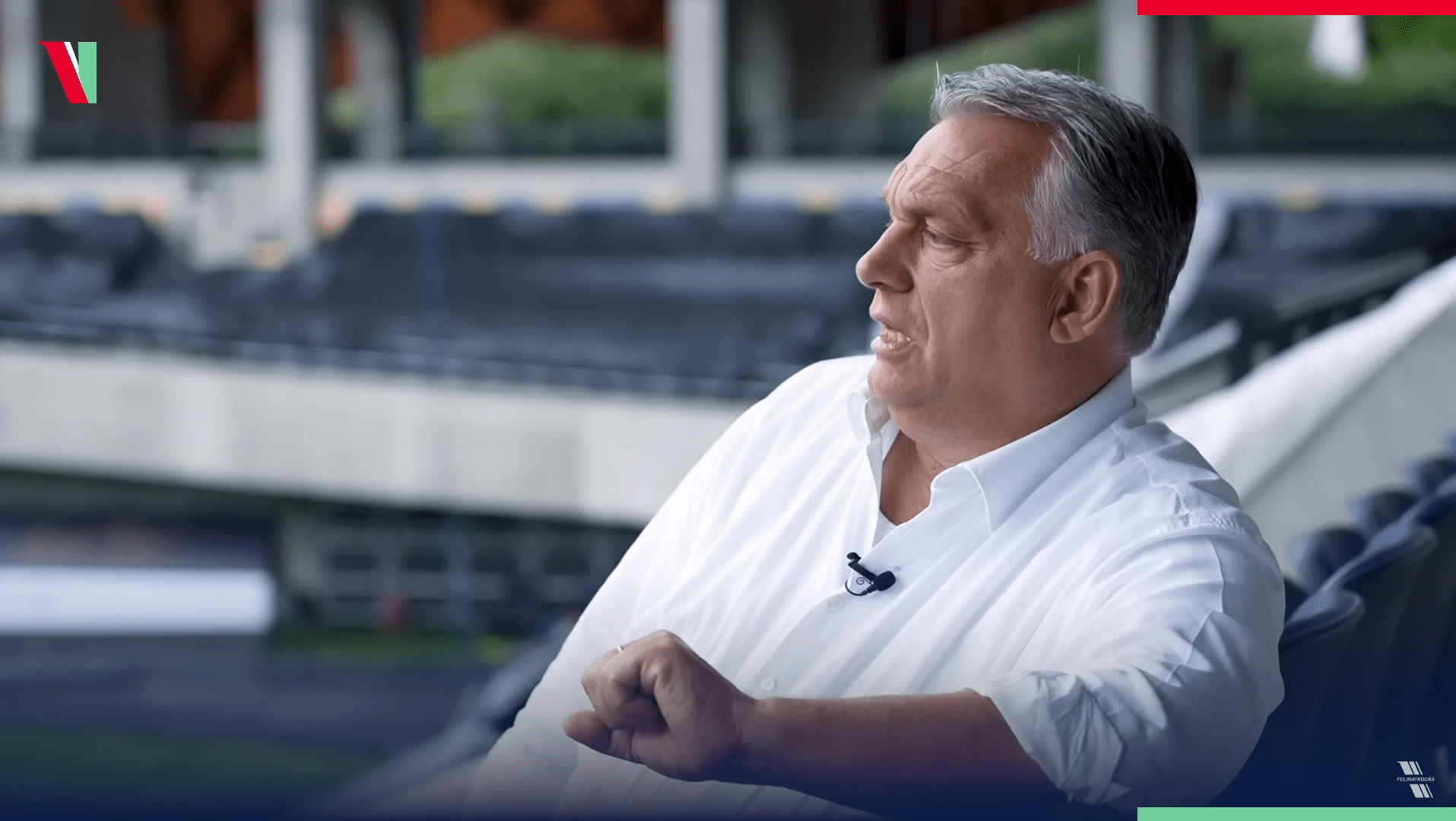‘It is the responsibility of the Puskás Akadémia to nurture football players for Hungarian football, with whom we can climb back to the top of the world,’ said Prime Minister Viktor Orbán, the founder of the academy, in an interview with puskasakademia.hu, published on his official YouTube channel.
Viktor Orbán emphasised that before each championship season, the Puskás Akadémia must have its own goals, and the most important objective when compared to the first team is to avoid relegation from the NB1 (Nemzeti Bajnokság 1, the top league of Hungarian football). At the same time, the team also wants to have as many home-grown players as possible play on the national team. However, combining these two goals makes it very challenging to remain in the top league. He pointed out that the Hungarian championship, with its twelve teams, often has only a difference of three to nine points between relegation and the third or fifth place, which means just two or three matches. It is easy to ‘fall out’ of the NB1 while one might have thought of competing for medals, Orbán remarked.
Integrating young players under such circumstances requires courage and boldness from the coach, which is why Zsolt Hornyák has been sitting on the bench for a long time: he combines these two goals in an optimal way. Orbán emphasised that the motto of the academy still holds: ‘We are raising people, good people who happen to be good football players.’
He also opined that the 12–13 years old age group being one of the greatest challenges in Hungarian football training because until the age of 12, many skills develop that cannot be trained later. This is where the focus of the football federation should be, especially regarding the national teams, he said, adding that the responsibility of the academies is to bring out the best from those who enter.
The PM expressed that Hungarian football is not part of the entertainment industry, but rather
part of the Hungarian people’s lives and their national identity.
Their aim is not to be amused and cheer for foreign players brought in from distant lands but to see their own children play. If people give up on this, Hungarian football will have no purpose, he asserted.
Interjú a puskasakademia.hu honlapnak.
Interjú a puskasakademia.hu honlapnak.
Thus, the goal at the Puskás Akadémia is to have very talented foreign players whom the young players can look up to, but the other half of the team should consist of home-grown players, Orbán stated. He recalled that last year, the first team of the academy had four or five home-grown youngsters in the starting line-up, and one or two more would come in as substitutes, so every week, at least six home-grown players could be seen on the field. It is possible to ascend from the U–18 team to the first team within a week, but he also warned of the great risk: ‘You lose two or three matches, and you find yourself among the relegation candidates instead of on the podium.’
He also mentioned that it is difficult for the academy when their home-grown players go abroad. If these players were in Hungary, the Puskás Akadémia would compete with Ferencváros for the championship title, said Orbán. However, he did not see this as a problem since
it is essential for Hungarian football’s development that the best players get more experience in top foreign leagues,
and thus, later can serve the national team. Nevertheless, this requires the academy to constantly integrate 17-18-19-year-old talents into the team.
Orbán mentioned the restructuring of the Puskás Akadémia and the separation of the team and the staff responsible for running the nationally recognised academies. The latter has now moved to Budapest with a new leadership, including Ádám Schmidt, State Secretary for Sports, Ádám Szalai, former national team footballer, and Dezső Liszkai, former director of the academy. The PM called this a difficult decision but said that the multitude of tasks ‘slowly overwhelmed the academy.’ He also mentioned that under the new setup, Balázs Tóth, the club’s sports director, has taken over the professional supervision of the academy.
Orbán, speaking of Ferencváros’s failure in the Champions League, said it points to one of the major problems in Hungarian football: that there is only one club that is currently in play at the international level. It is a significant lesson because in football, inexplicable things always happen, and it is not good to have only one internationally recognised team because if that team fails, Hungary will be left without a serious top team. Therefore, he emphasised the need for one or two more teams with a budget, player quality, and international rankings similar to those of Ferencváros. However, he added that the Puskás Akadémia cannot take on this role. For this, a large club with historical roots and a significant tradition is needed.
The mission of the Puskás Akadémia is to bring as many talented children to the highest level of education and training, with excellent academic and professional backgrounds, top-quality knowledge, great former players, and individual training, so the footballers can reach the NB1, the national team, and international top leagues, he said. Sometimes a year group might ‘slip through’ in such a way that there are three or four very talented young players who can be integrated into the team and form a good mix with the foreign players, which allows the team to compete in international cups as well.
However, in the long run, the Puskás Akadémia should not be considered as an internationally recognised club but as a place where reliable, well-prepared, mentally strong, and well-trained players continue the best traditions of Hungarian football, Orbán concluded in the interview.
Related articles:








